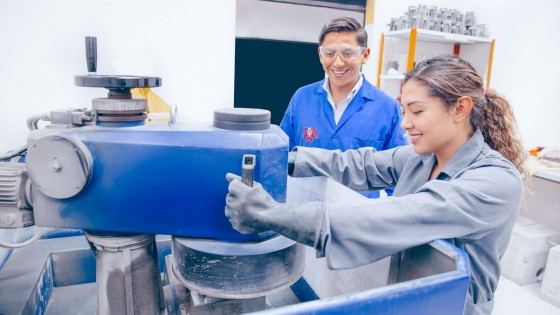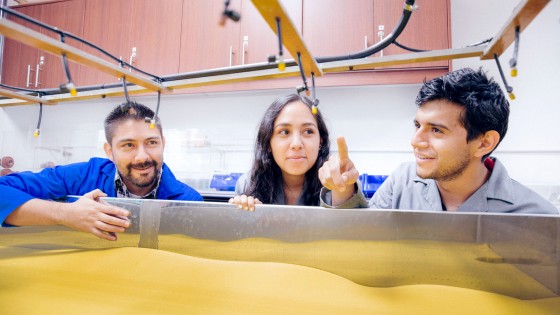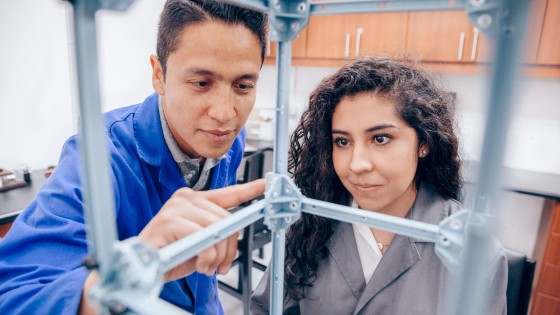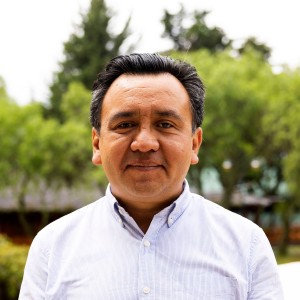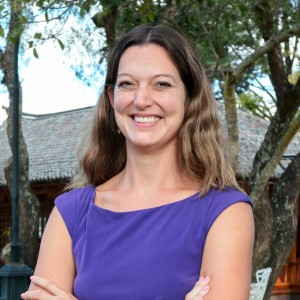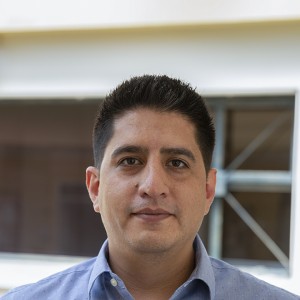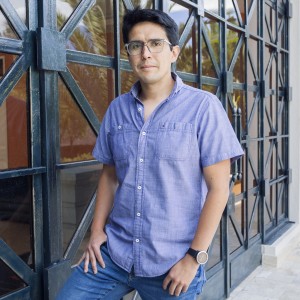Civil Engineering
"We design and build the infrastructure of the future"
Civil Engineering
The Civil Engineering degree focuses on the study of planning, design, and construction of infrastructure that addresses or mitigates societal issues. At the same time, it examines the application of various technical solutions to solve these problems through the development of Civil Engineering projects. In this regard, infrastructure is studied across different sectors such as structures, roads, hydraulics, geotechnics, and construction project management.
Advantages
The USFQ Civil Engineering program is recognized by and offers the following:
- A modern study plan compatible with those of prestigious universities in North America and Europe, which facilitates international exchange opportunities and internships.
- High-level professors who constantly produce scientific research and generate publications in Ecuador.
- Modernly equipped concrete testing, geotechnology, road design, structures, hydraulics and paving laboratories.
- Being the awardee of the American Concrete Institute ACI Excellence University Award every year since 2015.
- Active participation in the American Concrete Institute ACI international student competitions, obtaining more than 12 prices (4 of them first place) and demonstrating a very high level in the application of concrete technology.
- Obtaining authorization by the ACI Sponsoring Group for international certifications on knowledge in concrete technology from 2018.
- Being part of the ACI Student Chapter, and the Engineers Without Borders Student Chapter, where students participate in research activities, training, academic and social events, conferences, seminars and community outreach projects, among other programs.
- Possibility of further studies in two master's degree programs: Master in Earthquake Resistant Design and Construction, and Master in Management of Construction and Real Estate Companies.
Professional field
USFQ aims to prepare civil engineers who can efficiently and creatively face the challenges of the 21st century, by creating professionals that can lead Ecuador’s development in their respective fields, whom are entrepreneurs of new activities aiming to find efficient solutions to old and new problems of society. Because of this, the USFQ Civil Engineering curriculum has been structured to educate and train students to become:
Engineers with a solid humanistic formation in Liberal Arts.
Before becoming engineers or a technicians, students must get to know themselves, recognize their strengths and weaknesses with objective knowledge towards their country and the world, and be able to recognize and appreciate the importance of all activities that humans carry out in the environment, and sensibly understand and act upon complex problems of modern society.
Generalist engineers with a solid scientific and technical background.
Student training at the undergraduate level is complete and solid in all areas of specialization. The objective is to train international grade generalist engineers, who can exercise their profession efficiently in any specialized area, or who can successfully continue their graduate studies at USFQ or in any other international university.
Engineers with the ability to manage and administer their professional practice.
USFQ civil engineering students acquire managerial training, and have tools that allow them to efficiently organize their professional practice, either individually or in a business association with other professionals.
Creative and innovative engineers.
Graduates of the civil engineering program at USFQ have a positive mental attitude, know how to set relevant objectives and goals, are creative and innovative, are entrepreneurs in carrying out new projects, and know how to break schemes and imaginatively transform problems into professional challenges and opportunities for self-improvement. Furthermore, they have objective knowledge of the reality in their country and the world, with great sensitivity towards problems of society and with solid ethical and moral principles.
Professional activities
The Civil Engineering program at USFQ trains professionals capable of successfully participating in the planning, design and construction processes of Ecuador’s physical infrastructure consisting of: buildings, housing communities, highways, bridges, tunnels, dams, ports, airports, drinking water supply systems, sewage networks, irrigation systems, environmental protection projects that include the prevention and mitigation of the effects of earthquakes, volcanic eruptions, floods and droughts.
The program is aimed at professionals who are willing to accept challenges and who aspire to work in highly responsible directive functions related to the planning, design, construction, financing, and equipping of civil engineering projects in local and international commercial and industrial consulting firms, construction firms, and financial institutions.
Testimonials
Testimonials from our graduates:
"When I started Graduate School at Ohio State University, I was a little afraid that my academic level was not the same as many of my new colleagues from several Latin American universities and the United States; soon, I realized that was not the case."
- José Antonio Pernas, Civil Engineer, class of 2007 -
"I entered USFQ with a Newton scholarship to study Civil Engineering. The education they offered me, of academic and human excellence, was crucial to receive a scholarship for graduate studies in the United States. One of the best decisions of my life was to study at USFQ. After earning my doctorate at Virginia Tech, I've returned to USFQ as a research professor, ready to form the future generations."
- Miguel Andrés Guerra, Civil Engineer, class of 2009 -
Our Professors Comments:
"The challenges posed by the country's new infrastructure projects of civil engineers with solid conceptual knowledge, open-minded, critical and questioning, with imagination and ingenuity to solve technical problems adequately and modernly and with the desire to continue to improve themselves permanently. Their education requires the following aspects: new forms of teaching, modern and updated academic environment, promotion of good judgment and technically based reasoning, early participation of students in national and international programs, research projects and academic and professional events. These are the guidelines of the Civil Engineering degree that we promote at the San Francisco University of Quito."
- Fabricio Yépez, Ph.D., Civil Engineering Program Head -
International Accreditation
Documentation
Program Educational Objectives (PEO):
PEO1 Technical knowledge: Demonstrate competencies and technical skills in areas of civil engineering (structures, road design, geotechnics, water management and construction management) that allow graduates to design and provide solutions to societal problems through civil engineering projects."
PEO 2 Engineering and society development: Understand the role of civil engineering in the development of society."
PEO 3 Humanist: Embrace the philosophy of the liberal arts as a positive and integral agent of society, continuously proposing creative solutions."
PEO 4 Continuous learning: Pursue continuous education as a professional practice to strengthen their skills and broaden their knowledge."
Student Outcomes (SO)
Engineering foundations and problem solving
SO1: An ability to identify, formulate, and solve complex engineering problems by applying principles of engineering, science, and mathematics.
Engineering Design
SO2: An ability to apply engineering design to produce solutions that meet specified needs with consideration of public health, safety, and welfare, as well as global, cultural, social, environmental, and economic factors.
Effective communication
SO3: An ability to communicate effectively with a range of audiences.
Contemporary Issues and Ethical Responsibility
SO4: An ability to recognize ethical and professional responsibilities in engineering situations and make informed judgments, which must consider the impact of engineering solutions in global, economic, environmental, and societal contexts.
Teamwork and organization
SO5: An ability to function effectively on a team whose members together provide leadership, create a collaborative and inclusive environment, establish goals, plan tasks, and meet objectives.
Experiment Design and Analysis
SO6: An ability to develop and conduct appropriate experimentation, analyze and interpret data, and use engineering judgment to draw conclusions.
Life-long learning and Broad knowledge
SO7: An ability to acquire and apply new knowledge as needed, using appropriate learning strategies.
Academic Faculty



